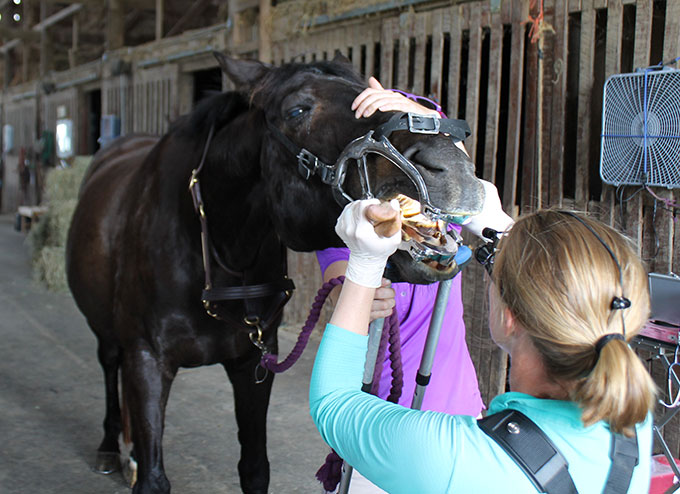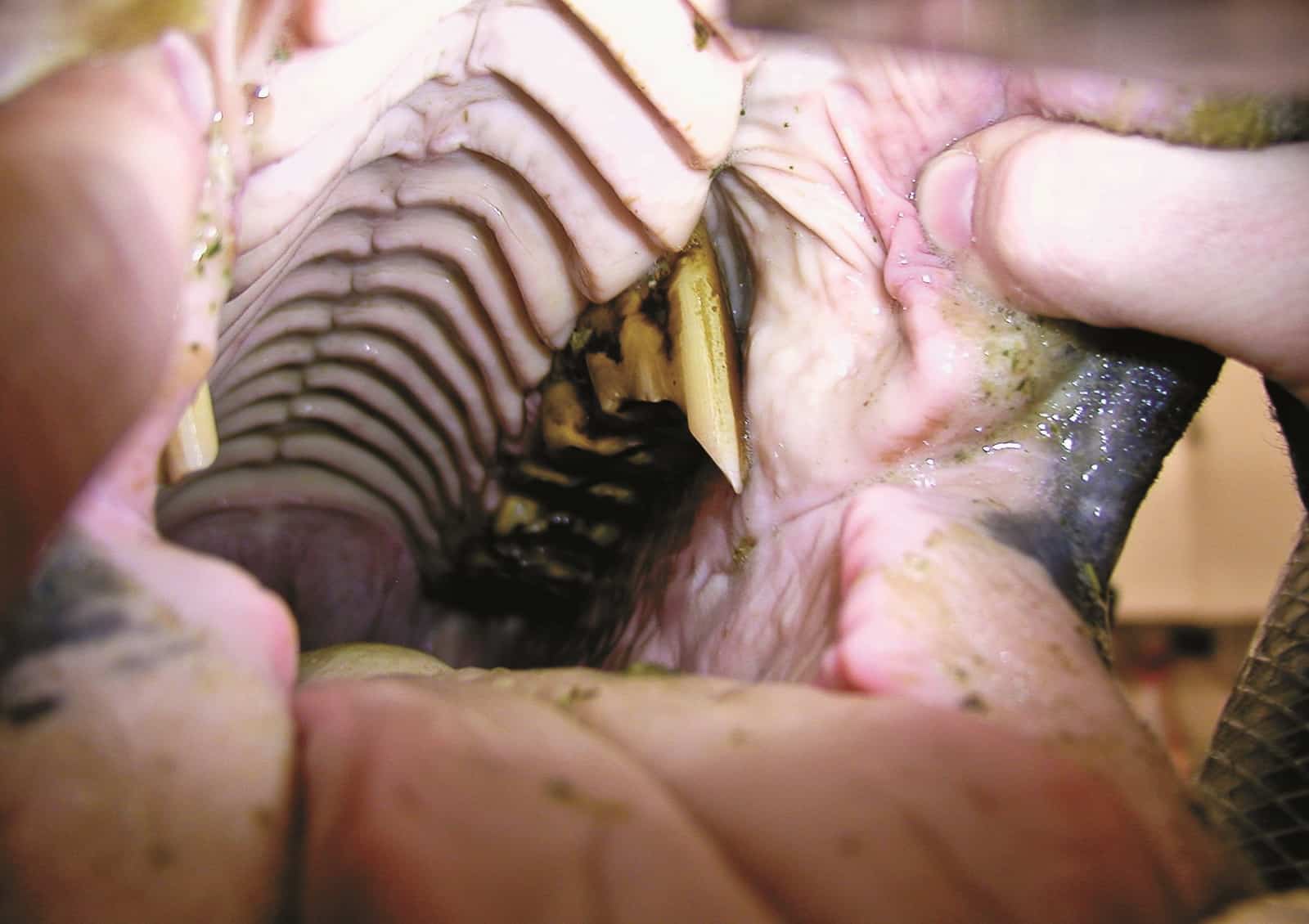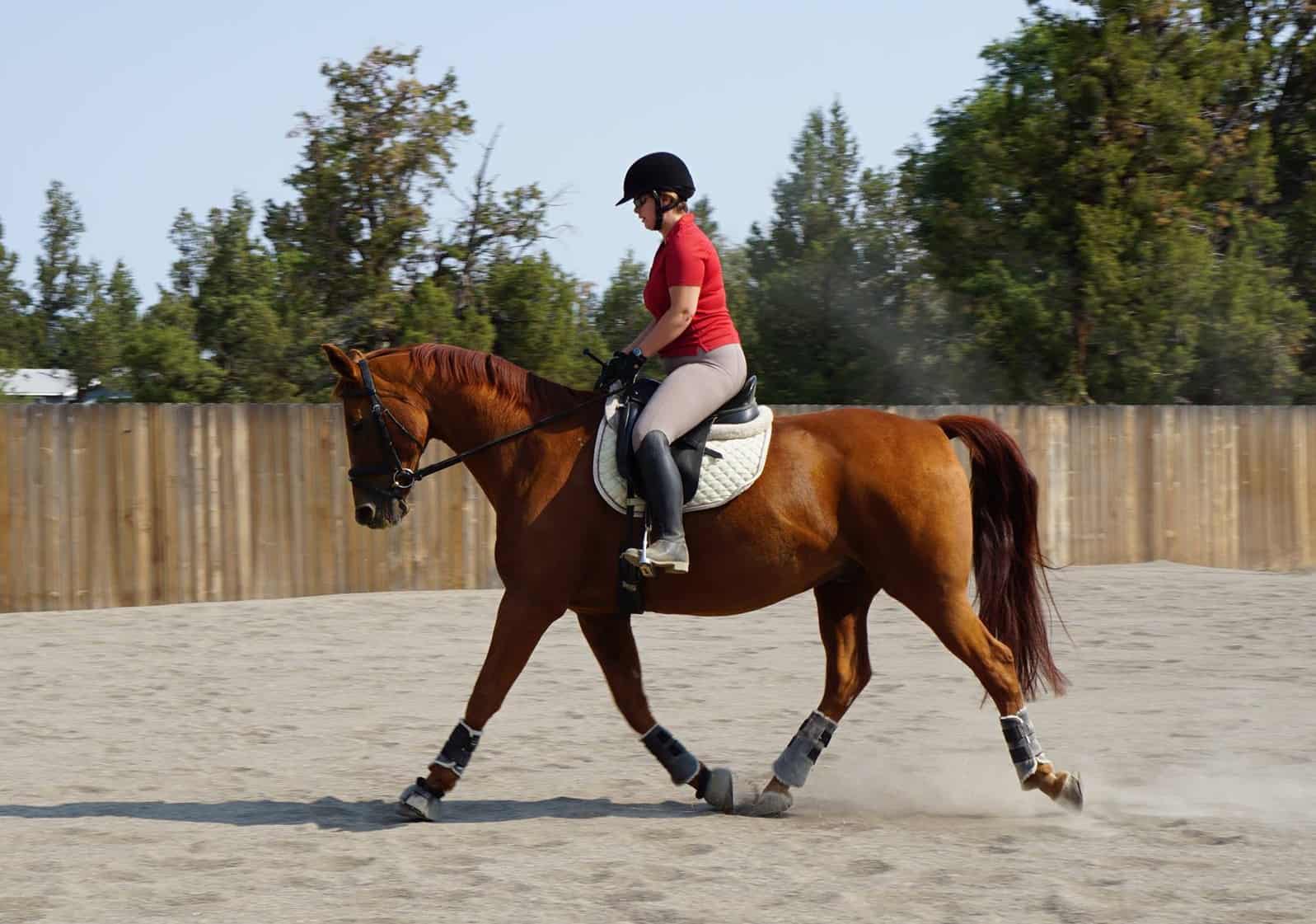Equine Dental Care and Health
Dental care is an important part of keeping a horse healthy and happy throughout his life. Learn about common tooth problems and regular dental care in this slideshow.
Share
ADVERTISEMENT
Dental care is an important part of keeping a horse healthy and happy throughout his life. Tooth problems can lead to pain-related training and behavioral issues, cause infection, and make it difficult for hard-keeping horses to gain and maintain weight. Work with your veterinarian to create an individualized dental care plan that works for your horse.

Dental Exams for Adult Horses
Adult horses should have their teeth examined at least once a year. Younger and older horses might need more frequent dental care. | Photo: Adam Spradling/The Horse
Visualizing the Mouth
Your veterinarian should sedate your horse for a thorough dental exam and treatment. A mouth speculum holds the horse’s mouth open during the exam and treatment, and your veterinarian will use lights to better see the horse’s teeth, cheeks, gums, and tongue. | Photo: Stephanie L. Church/The Horse
Tooth Abnormalities
During the exam, your veterinarian is looking for sharp points and abnormal tooth shape (shown), bite issues, broken or infected teeth, cheek ulcers, and other issues related to dental health. | Photo: Courtesy Bruce Connally
Floating
Veterinarians use both power and manual tools, called “floats,” to smooth out sharp tooth points and uneven teeth. | Photo: iStock
Long in the Tooth
Horses teeth erupt throughout most of their lives. This means older horses have “longer” exposed teeth. | Photo: Photos.com
Bridle Resistance
Resistance in the bridle can be a sign of mouth pain. A dental exam can rule out issues such as ulcerated cheeks and sharp tooth points. | Photo: iStock
Weight Loss
Weight loss can indicate a horse is having trouble chewing and digesting his feed and, therefore, isn't absorbing enough nutrients. | Photo: Alexandra Beckstett/The Horse
Quidding
Dental dysfunction and pain can cause horses to quid, which means they drop clumped balls of feed—particularly long-stem forage such as hay—as they chew. | Photo: Paula da Silva
Food Packed in Teeth
Food packed between cheek teeth can cause bad breath. | Photo: Courtesy Dr. Caroline N. Niederman
EOTRH
Equine odontoclastic tooth resorption and hypercementosis (EOTRH) is characterized by resorption of the tooth’s hard, calcified tissues (cementum, dentin, and enamel. Resorption occurs when odontoclasts—the cells responsible for resorbing the roots of deciduous (baby) teeth during eruption of permanent teeth—become overactive and unregulated. | Photo: Courtesy Dr. Shannon Lee
Share

Michelle Anderson is the former digital managing editor at The Horse. A lifelong horse owner, Anderson competes in dressage and enjoys trail riding. She’s a Washington State University graduate and holds a bachelor’s degree in communications with a minor in business administration and extensive coursework in animal sciences. She has worked in equine publishing since 1998. She currently lives with her husband on a small horse property in Central Oregon.
Related Articles
Stay on top of the most recent Horse Health news with

















